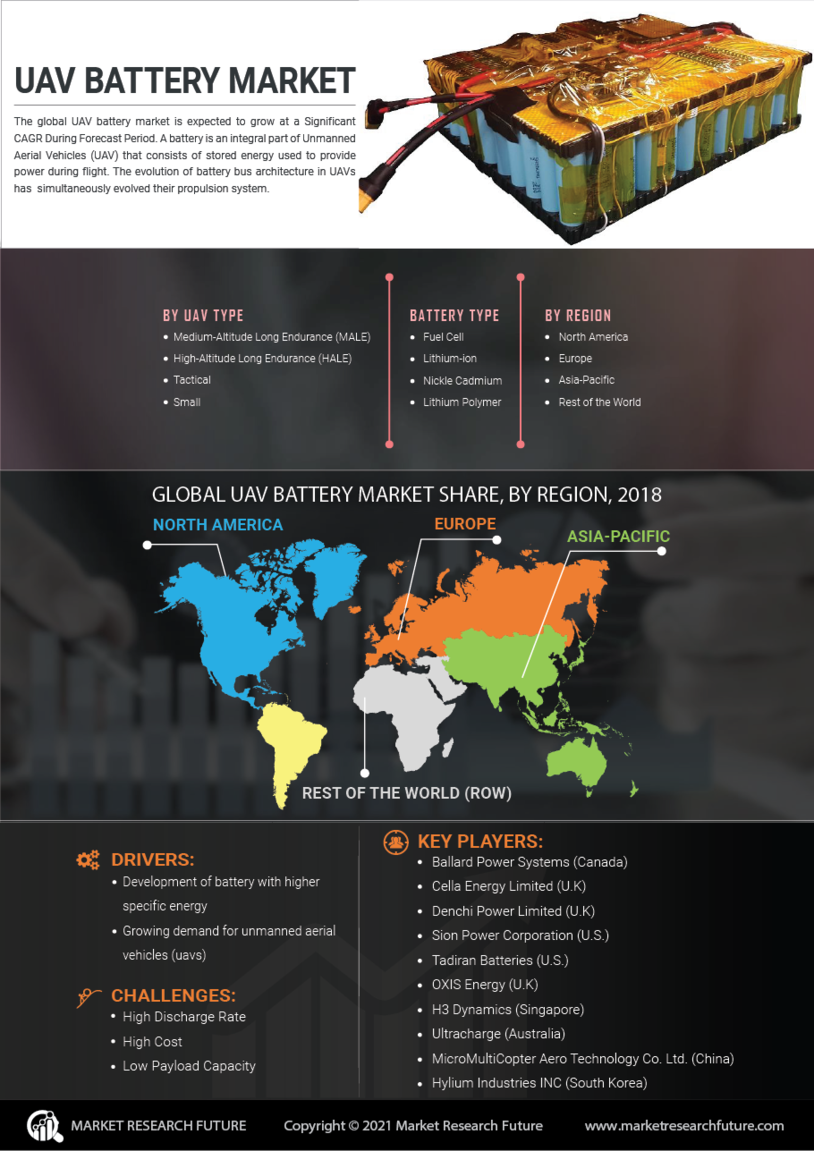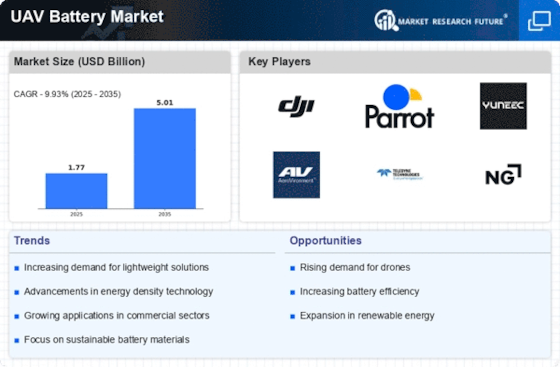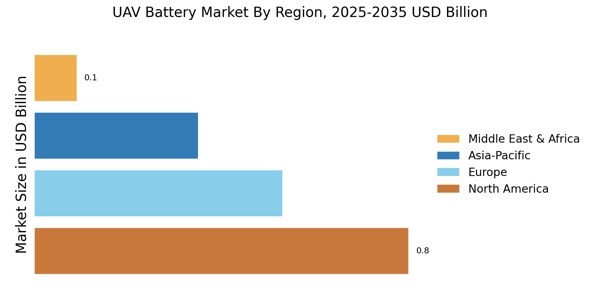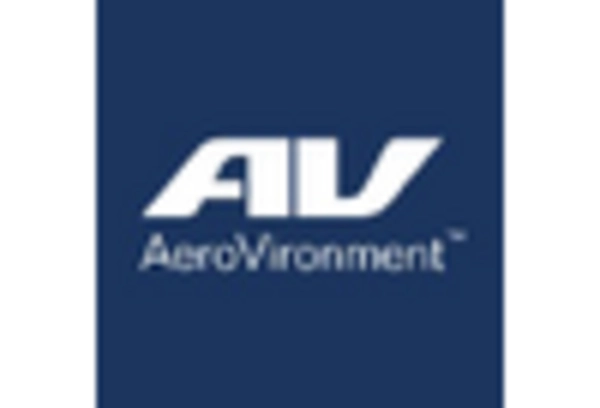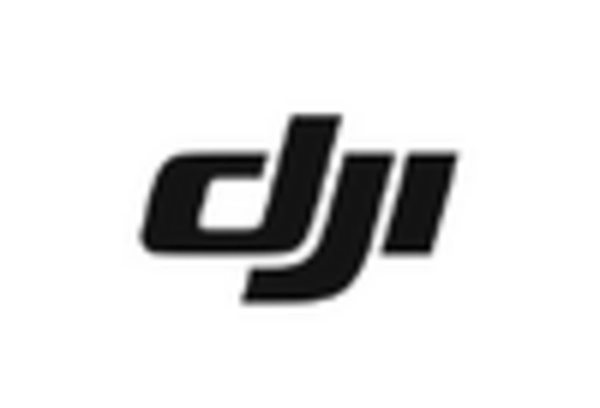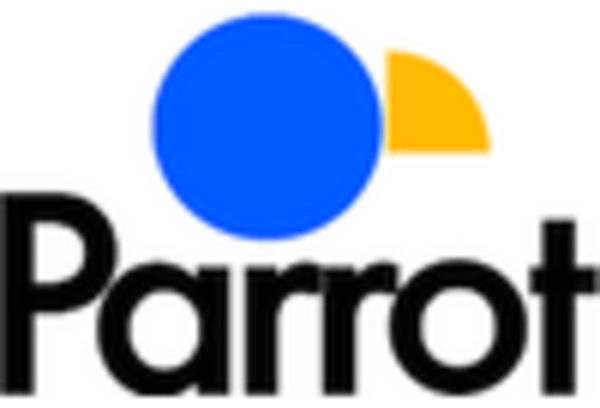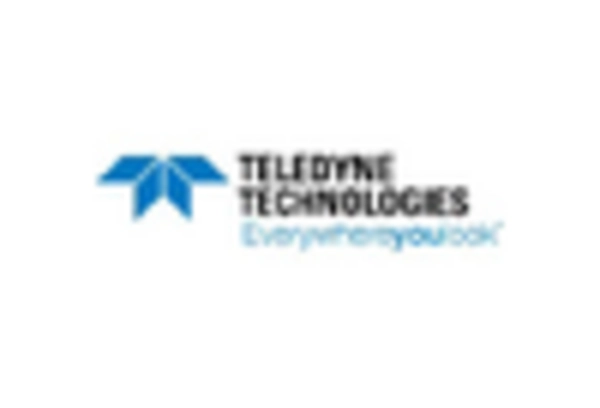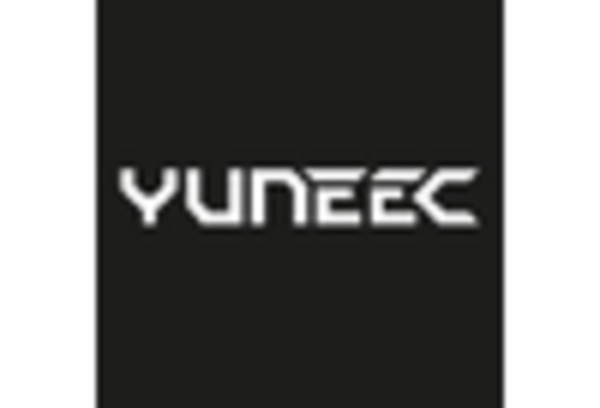Growing Focus on Sustainability
The UAV Battery Market is increasingly aligning with sustainability goals as environmental concerns gain prominence. Manufacturers are exploring eco-friendly battery solutions that minimize environmental impact while maintaining performance. The shift towards sustainable practices is evident in the development of recyclable battery materials and energy-efficient production processes. As organizations aim to reduce their carbon footprint, the demand for sustainable UAV batteries is likely to rise. This trend is expected to contribute to a more responsible UAV Battery Market, where sustainability becomes a key differentiator among manufacturers and users alike.
Advancements in Battery Technology
Technological innovations in battery chemistry and design are significantly influencing the UAV Battery Market. The development of high-energy-density batteries, such as lithium-sulfur and solid-state batteries, is enhancing the performance and longevity of UAVs. These advancements are crucial as they allow UAVs to operate for longer durations, which is essential for applications like search and rescue missions. As of 2025, the market for advanced battery technologies is expected to grow substantially, with projections indicating a potential increase in market share for these innovative solutions. This trend underscores the importance of continuous research and development in the UAV Battery Market.
Government Regulations and Support
Government regulations and support play a pivotal role in shaping the UAV Battery Market. Many countries are implementing policies that promote the use of UAVs for commercial purposes, which in turn drives the demand for efficient battery systems. For example, regulatory frameworks that facilitate drone deliveries and aerial inspections are becoming more prevalent. This regulatory support is expected to bolster the UAV market, with estimates suggesting a compound annual growth rate of around 15% through 2027. Consequently, the UAV Battery Market is likely to benefit from this supportive environment, as manufacturers strive to meet the evolving standards and requirements.
Rising Demand for UAV Applications
The UAV Battery Market is experiencing a surge in demand due to the increasing adoption of UAVs across various sectors. Industries such as agriculture, logistics, and surveillance are leveraging UAV technology for enhanced operational efficiency. For instance, the agricultural sector utilizes UAVs for precision farming, which requires reliable battery systems to ensure extended flight times. As of 2025, the UAV market is projected to reach a valuation of approximately 58 billion USD, indicating a robust growth trajectory. This rising demand for UAV applications necessitates advancements in battery technology, thereby driving the UAV Battery Market forward.
Expansion of Commercial Drone Services
The expansion of commercial drone services is a significant driver for the UAV Battery Market. As businesses recognize the potential of UAVs for various applications, including delivery services and infrastructure inspections, the need for reliable battery systems becomes paramount. The commercial drone market is anticipated to grow at a rapid pace, with estimates suggesting a market size of over 30 billion USD by 2026. This growth is likely to stimulate demand for advanced battery technologies that can support the operational requirements of commercial UAVs. Consequently, the UAV Battery Market is poised for substantial growth as it adapts to the evolving landscape of commercial drone services.
